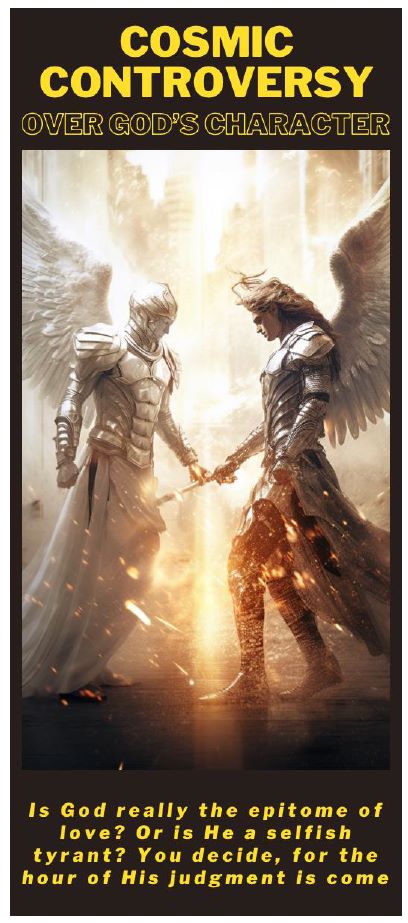Historical Quotes From Past and Present Bible Teachers Concerning the Character of God
Updated July 17, 2025
As the title suggests, below are some historical quotes from past and present authors concerning the character of God. This is important because it will show that the recent explosion of character of God material today (revealing He is a non-violent God who is not the author of death) is not something new which has popped up in a few minority groups. Although authors in the past may not have had the full revelation and understanding of God’s character, they surely paved the way for those of us to today to explore more fully and comprehend what is the breadth, and length, and depth, and height of the love of Christ, which passeth knowledge, that we might be filled with all the fullness of God (Ephesians 3:18, 19).
Most of the Bible verses that are not within the author’s comment are supplied by myself to draw your attention to a few Bible examples of what the author is speaking of. The exception here is when the author is speaking of a particular Bible passage, such as the commentaries by Adam Clarke and John Gill. I have also supplied bold numbers within some comments to differentiate between the author’s subject matter so that the comments do not seem to be all jumbled together.
For a deeper understanding of what the authors are communicating, please see the Q&A and Books sections on this site which will provide even more biblical exegesis regarding this most precious message.
St. Gregory Palamas (1296-1359)
“For the wages of sin is death, but the gift of God is eternal life in Christ Jesus our Lord.” (Romans 6:23)

“God created neither death, nor illnesses, nor infirmities. This death of the body was not given by God; he neither made it nor did he ordain that it should be! Nor is God the author of bodily illnesses.” (St. Gregory Palamas, Homilies XXXI, p. 151.388BC, as quoted by Larchet, Jean-Claude The Theology of Illness, p. 27).
Thomas Pierce (1622-1691)
“But the Lord hardened Pharaoh’s heart, and he did not let the children of Israel go.” (Exodus 10:20)
“And even as they did not like to retain God in their knowledge, God gave them over to a reprobate mind, to do those things which are not convenient.” (Romans 1:28)
“And for this cause God shall send them strong delusion, that they should believe a lie.” (2 Thessalonians 2:11)
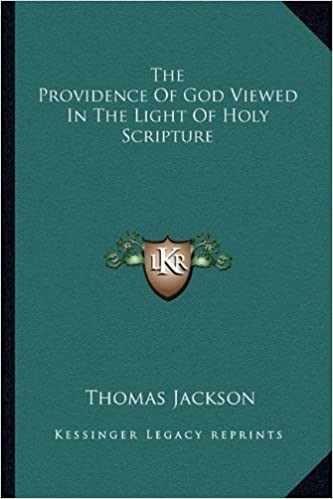
“When God is said to harden men’s hearts,-to deliver them up to a reprobate mind,-to send them strong delusions, that they should believe that God is acting unrighteously – meaning He is acting against His character a lie, and the like;- it is infinitely far from being meant of an efficacious impulse in God Almighty. That all those verbs,- to harden, to blind, to deliver up, to send delusions, to deceive, and the like,-are by an ordinary Hebraism only PERMISSIVE in signification, though active in sound, is placed without all controversy.” (Thomas Pierce, I, p. 23-24 edition of 1658 as quoted in Jackson, The Providence of God Viewed In The Light Of Holy Scripture, p. 401).
William Lowth (1661-1732)
“O Lord, why have You made us stray from Your ways, And hardened our heart from Your fear? Return for Your servants’ sake, The tribes of Your inheritance” (Isaiah 63:17)
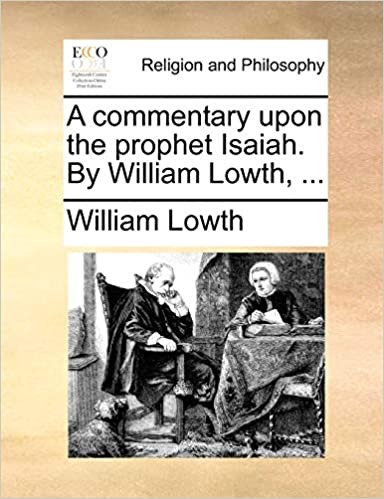
“The Words might better have been rendered, Why hast thou suffered [permitted] us to err from thy ways? for the Form called Hiphil in Hebrew often denotes only Permission, and is rendered elsewhere to that Sense by our translators.” (William Lowth, A Commentary Upon the Prophet Isaiah, p. 501, 1714).
Edward Bird (1726)
“So the LORD sent fiery serpents among the people, and they bit the people; and many of the people of Israel died.” (Numbers 21:6)
“So the LORD sent pestilence upon Israel: and there fell of Israel seventy thousand men.” (1 Chronicles 21:14)
“And for this cause God shall send them strong delusion, that they should believe a lie.” (2 Thessalonians 2:11)

“For pray, take notice, God is said in scripture to send what He can but doth not hinder from being sent.” (Edward Bird, Fate and Destiny, Inconsistent with Christianity: or, The Horrid Decree of Absolute and Unconditional Election and Reprobation Fully Detected, 1726).
John Gill (1697-1771)
“My [Jesus’] kingdom is not of this world: If it were, then would My servants fight, that I should not be delivered to the Jews.” (John 18:36)

“If Christ's kingdom had been a worldly one, set up on worldly views, and governed with worldly policy, and was to answer some worldly ends, Christ would have had servants enough among the Jews, who would have declared for him, and took up arms in his favour against the Romans … [however] it [Christ’s kingdom] does not rise out of, nor proceed upon, nor is it supported by worldly principles, wherefore none of the above methods are made use of.” (Gill’s Bible Exposition, John 18:36).
John Goodge Foyster (1826)
“For the LORD hath poured out upon you the spirit of deep sleep, and hath closed your eyes: the prophets and your rulers, the seers hath he covered.” (Isaiah 29:10)
“He hath blinded their eyes, and hardened their heart; that they should not see with their eyes, nor understand with their heart, and be converted, and I should heal them.” (John 12:40)
“(According as it is written, God hath given them the spirit of slumber, eyes that they should not see, and ears that they should not hear;) unto this day.” (Romans 11:18)
 “In the language of scripture, natural consequences are sometimes spoken of as though they were pre-ordained and irrevocable decrees. What happens solely through the permission of the Almighty, in the ordinary course of his Providence, is described as though it had taken place through some special and irresistible intervention of his hand. This is a mode of writing peculiar to the Hebrew idiom; an idiom which prevails everywhere throughout the New Testament, as well as the Old. Thus, when the sacred writers represent God as ‘blinding the eyes of men that they should not see, and hardening their hearts that they should not understand;’ their meaning generally is that he does not powerfully interfere to prevent those evils which are the natural fruits of our own folly, perverseness, and impenitence.” (John Goodge Foyster, Sermons; p. 90, 1826).
“In the language of scripture, natural consequences are sometimes spoken of as though they were pre-ordained and irrevocable decrees. What happens solely through the permission of the Almighty, in the ordinary course of his Providence, is described as though it had taken place through some special and irresistible intervention of his hand. This is a mode of writing peculiar to the Hebrew idiom; an idiom which prevails everywhere throughout the New Testament, as well as the Old. Thus, when the sacred writers represent God as ‘blinding the eyes of men that they should not see, and hardening their hearts that they should not understand;’ their meaning generally is that he does not powerfully interfere to prevent those evils which are the natural fruits of our own folly, perverseness, and impenitence.” (John Goodge Foyster, Sermons; p. 90, 1826).
Adam Clarke (1762-1832)
1. “And the Lord said to Moses, ‘When you go back to Egypt, see that you do all those wonders before Pharaoh which I have put in your hand. But I will harden his heart, so that he will not let the people go.’” (Exodus 4:21)
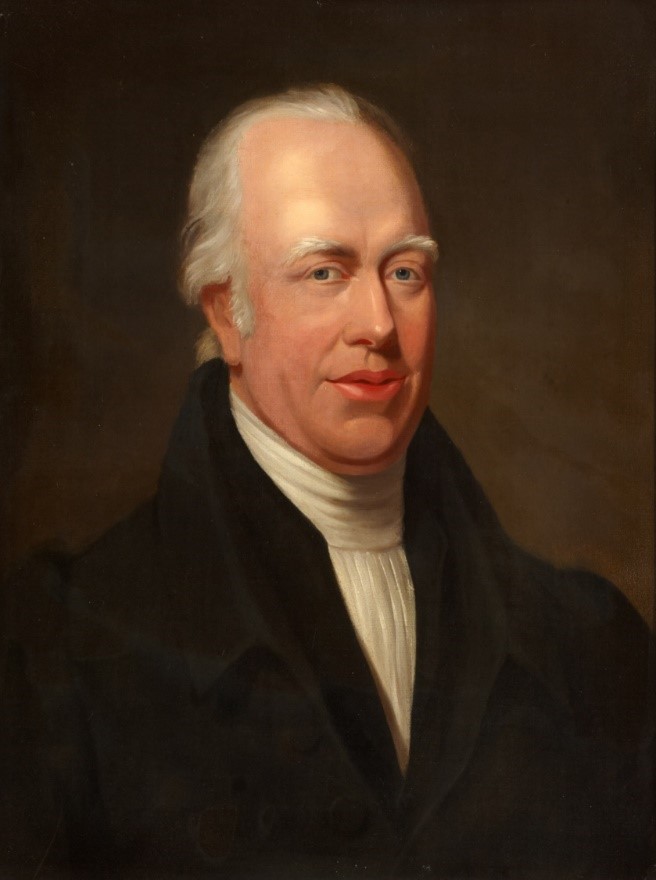
 “All those who have read the Scriptures with care and attention, know well that God is frequently represented in them as doing what he only permits to be done. So because a man has grieved his Spirit and resisted his grace he withdraws that Spirit and grace from him, and thus he becomes bold and presumptuous in sin. Pharaoh made his own heart stubborn against God, Exodus 9:34; and God gave him up to judicial blindness, so that he rushed on stubbornly to his own destruction.” (Adam Clarke, Commentary on the Whole Bible, Exodus 4:21).
“All those who have read the Scriptures with care and attention, know well that God is frequently represented in them as doing what he only permits to be done. So because a man has grieved his Spirit and resisted his grace he withdraws that Spirit and grace from him, and thus he becomes bold and presumptuous in sin. Pharaoh made his own heart stubborn against God, Exodus 9:34; and God gave him up to judicial blindness, so that he rushed on stubbornly to his own destruction.” (Adam Clarke, Commentary on the Whole Bible, Exodus 4:21).
2. “But the king [David] said, ‘What have I to do with you, you sons of Zeruiah? So let him [Shimei] curse, because the Lord has said to him, ‘Curse David.’ Who then shall say, ‘Why have you done so?’ And David said to Abishai and all his servants, ‘See how my son who came from my own body seeks my life. How much more now may this Benjamite? Let him alone, and let him curse; for so the Lord has ordered him.” (2 Samuel 16:10, 11)
“No man can suppose that ever God bade one man to curse another, much less that he commanded such a wretch as Shimei to curse such a man as David; but this is a peculiarity of the Hebrew language, which does not always distinguish between permission and commandment. Often the Scripture attributes to God what He only permits to be done; or what in the course of His providence He does not hinder. David, however, considers all this as being permitted of God for his chastisement and humiliation” (Adam Clarke, Commentary on the Whole Bible, 2 Samuel 16:10, 11).
3. “Therefore look! The Lord has put a lying spirit in the mouth of all these prophets of yours, and the Lord has declared disaster against you” (1 Kings 22:23)
“He hath permitted, or suffered, a lying spirit to influence thy prophets. It is requisite again to remind the reader, that the Scriptures repeatedly represent God as doing what, in the course of his providence, he only permits or suffers to be done. Nothing can be done in heaven, in earth, or hell, but either by his immediate energy or permission.” (Adam Clarke, Commentary on the Whole Bible, 1 Kings 22:23).
Richard Graves (1763-1829)
“Then the LORD rained brimstone and fire on Sodom and Gomorrah, from the LORD out of the heavens. (Genesis 19:24)
“So Elijah answered and said to the captain of fifty, ‘If I am a man of God, then let fire come down from heaven and consume you and your fifty men.’ And fire came down from heaven and consumed him and his fifty.” (2 kings 1:10)
“And as they [the disciples] went, they entered a village of the Samaritans, to prepare for Him [Jesus]. But they did not receive Him, because His face was set for the journey to Jerusalem. And when His disciples James and John saw this, they said, ‘Lord, do You want us to command fire to come down from heaven and consume them, just as Elijah did?’ But He turned and rebuked them, and said, ‘You do not know what manner of spirit you are of. For the Son of Man did not come to destroy men’s lives but to save them.’” And they went to another village.” (Luke 9:52-56)

“All who are conversant in the language of the Old Testament know, that it speaks of every event which God permits, as proceeding directly from him; and describes his as hardening the hearts of those who abuse the divine dispensations.” (Richard Graves, Lectures on the Four Last Books of the Pentateuch, p. 194).
Otway Caesar (1780-1842)
“Jesus said to him, ‘Have I been with you so long, and yet you have not known Me, Philip? He who has seen Me has seen the Father; so how can you say, ‘Show us the Father’?” (John 14:9)
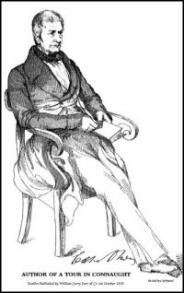
“To know God is to understand his character, and to know Christ is to understand his character. If then to know Christ is to know God, the character of Christ must be the character of God.” (Otway Caesar, The Word of God Weighed against the Commandments of Men, in Six Controversial Letters, p. 130).
Oliver Prescott Hiller (1814-1870)
“But each one is tempted when he is drawn away by his own desires and enticed. Then, when desire has conceived, it gives birth to sin; and sin, when it is full-grown, brings forth death.” (James 1:14, 15)
 “Is it any wonder, then, when the spirit is in such a state of moral disorder, that the body, which has its life from the spirit, should be filled with impurity and disease also? and that, when a whole people or all mankind is in such a state, pestilences should break out and ravage whole countries and go through the world? Let not men, then, (as they are too apt to do) ascribe these scourges of humanity to the Hand of their Heavenly Father above, who is Love and Goodness itself, -who is a Saviour, not a destroyer,-but to their own state of corruption and sin, which is the sole cause of their suffering.” (Oliver Prescott Hiller, God Manifest: A Treatise on the Goodness, Wisdom, and Power of God, as Manifested in His Works, Word, and Personal Appearing p. 280).
“Is it any wonder, then, when the spirit is in such a state of moral disorder, that the body, which has its life from the spirit, should be filled with impurity and disease also? and that, when a whole people or all mankind is in such a state, pestilences should break out and ravage whole countries and go through the world? Let not men, then, (as they are too apt to do) ascribe these scourges of humanity to the Hand of their Heavenly Father above, who is Love and Goodness itself, -who is a Saviour, not a destroyer,-but to their own state of corruption and sin, which is the sole cause of their suffering.” (Oliver Prescott Hiller, God Manifest: A Treatise on the Goodness, Wisdom, and Power of God, as Manifested in His Works, Word, and Personal Appearing p. 280).
Charles Cuthbert Hall (1852-1908)
“Whoever commits sin also commits lawlessness, and sin is lawlessness.” (1 John 3:4)
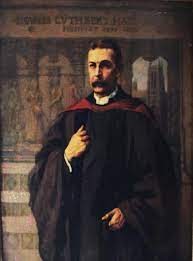
“Sin is lawlessness; wrong adjustment to right laws; wrong uses of right things. And this accounts for all the physical and material sorrow, sickness, misery, poverty, bitterness, violence, death in the world …”
“.... pain, calamity, sickness, and death are not to be attributed to God as causing them, and as sending them upon us, but that they and all other evils have entered into the world as the fruits and consequences of sin.” (Charles Cutbert Hall, Does God Send Trouble? pp. 25, 80, 1894).
Ellen G. White (1827-1915)
1. “So the Lord said, ‘I will destroy man whom I have created from the face of the earth, both man and beast, creeping thing and birds of the air, for I am sorry that I have made them.’” (Genesis 6:7)
“Hast thou marked the old way which wicked men have trodden? Which were cut down out of time, whose foundation was overflown with a flood: Which said unto God, Depart from us: and what can the Almighty do for them?” (Job 15-17)
“For the wrath of God is revealed from heaven against all ungodliness and unrighteousness of men, who hold [suppress] the truth in unrighteousness … Wherefore God also gave them up to uncleanness through the lusts of their own hearts, to dishonour their own bodies between themselves: Who changed the truth of God into a lie, and worshipped and served the creature more than the Creator, who is blessed for ever. Amen. For this cause God gave them up unto vile affections … And even as they did not like to retain God in their knowledge, God gave them over to a reprobate mind, to do those things which are not convenient.” (Romans 1:18, 24-26, 28).
 “When the Lord sees unbelief in the heart against light and evidence, all he has to do is to let the human agent alone; for the seed put into the soil will bring forth seed after its kind. Many have been sowing the seed of unbelief, and if this seed is cultivated, it will produce a harvest that will not be so pleasant to reap as the seed is to sow … God destroys no man; but after a time the wicked are given up to the destruction they have wrought for themselves.” (Ellen G. White, Youth’s Instructor, November 30, 1893).
“When the Lord sees unbelief in the heart against light and evidence, all he has to do is to let the human agent alone; for the seed put into the soil will bring forth seed after its kind. Many have been sowing the seed of unbelief, and if this seed is cultivated, it will produce a harvest that will not be so pleasant to reap as the seed is to sow … God destroys no man; but after a time the wicked are given up to the destruction they have wrought for themselves.” (Ellen G. White, Youth’s Instructor, November 30, 1893).
“Every seed sown produces a harvest of its kind. So it is in human life. We all need to sow the seeds of compassion, sympathy, and love; for we shall reap what we sow. Every characteristic of selfishness, self-love, self-esteem, every act of self-indulgence, will bring forth a like harvest. He who lives for self is sowing to the flesh, and of the flesh he will reap corruption. God destroys no man. Everyone who is destroyed will have destroyed himself. Everyone who stifles the admonitions of conscience is sowing the seeds of unbelief, and these will produce a sure harvest.” (Ellen G. White, Christ’s Object Lessons, p. 84).
2. “For the Egyptians buried all their firstborn, which the LORD had smitten among them: upon their gods also the LORD executed judgments.” (Numbers 33:4)
“The LORD is known by the judgment He executes; The wicked is snared in the work of his own hands. Meditation. Selah” (Psalm 9:16)
“I was shown that the judgments of God would not come directly out from the Lord upon them, but in this way: They place themselves beyond His protection. He warns, corrects, reproves, and points out the only path of safety; then, if those who have been the objects of His special care will follow their own course, independent of the Spirit of God, after repeated warnings, if they choose their own way, then He does not commission His angels to prevent Satan's decided attacks upon them. It is Satan's power that is at work at sea and on land, bringing calamity and distress and sweeping off multitudes to make sure of his prey.” (Ellen G. White, Manuscript Releases 14, 1883)
"We cannot know how much we owe to Christ for the peace and protection which we enjoy. It is the restraining power of God that prevents mankind from passing fully under the control of Satan. The disobedient and unthankful have great reason for gratitude for God's mercy and long-suffering in holding in check the cruel, malignant power of the evil one. But when men pass the limits of divine forbearance, that restraint is removed. God does not stand toward the sinner as an executioner of the sentence against transgression; but he leaves the rejecters of his mercy to themselves, to reap that which they have sown. Every ray of light rejected, every warning despised or unheeded, every passion indulged, every transgression of the law of God, is a seed sown, which yields its unfailing harvest. The Spirit of God, persistently resisted, is at last withdrawn from the sinner, and then there is left no power to control the evil passions of the soul, and no protection from the malice and enmity of Satan." (Ellen G. White, The Great Controversy, p. 36)
Robert Eyton (1846-1908)
“In the beginning was the Word, and the Word was with God, and the Word was God. He was in the beginning with God … And the Word became flesh and dwelt among us, and we beheld His glory, the glory as of the only begotten of the Father, full of grace and truth.” (John 1:1, 2, 14)

“Christ’s Life, then, was a Revelation of what men most wanted to know, of the Character of God. God was in Christ not only ‘reconciling the world,’ but making Himself known to men: ‘He that hath seen Him hath seen the Father.’ As we gaze on Him [Christ] going about with that calm, steadfast mien, doing good, healing the sick, sitting with the despised, at home with little children, counting none too sinful for His help, as we see Him in the Gospels, we gaze on the face of God.” (Robert Eyton from his sermon “Christ the Revealer of the Father” in The True Life: And Other Sermons, pp. 155, 156, 1889).
“He [God] is not the Author of evil, either of sin or of its terrible progeny, disease and death; we have no right to say even that God sends sickness or death, or that such things are due directly to the Will of God.” (Robert Eyton, The Lord’s Prayer: Sermons, p. 106, 1892).
William Matson (1849-1917)
“And to the man he said, ‘Since you listened to your wife and ate from the tree whose fruit I commanded you not to eat, the ground is cursed because of you. All your life you will struggle to scratch a living from it. It will grow thorns and thistles for you, though you will eat of its grains.’” (Genesis 3:17, 18)
“The earth is also defiled under its inhabitants, Because they have transgressed the laws, Changed the ordinance, Broken the everlasting covenant. Therefore the curse has devoured the earth …” (Isaiah 24:5, 6)
“For we know that the whole creation groans and labors with birth pangs together until now.” (Romans 8:22)
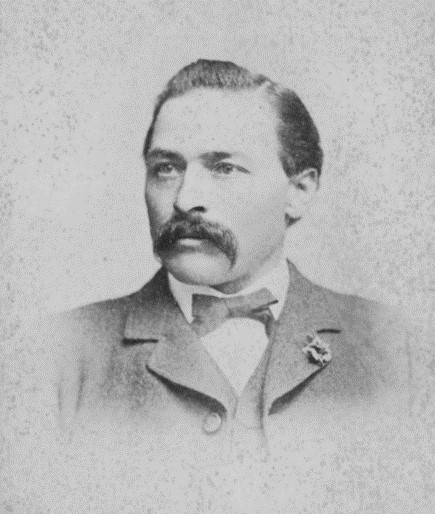
“God, then, did not make this world a scene of sorrow. It was not His purpose that it should be such, but the contrary. It became what it is by the deed of Satan, in opposition to the will of God.” (William Matson, The Adversary: His Purpose, Power and Person, p. 43, 1891).
E.J. Waggoner (1855-1916)
1. “Therefore, in all things He [Christ] had to be made like His brethren, that He might be a merciful and faithful High Priest in things pertaining to God, to make propitiation for the sins of the people.” (Hebrews 2:17)
“And He [Christ] Himself is the propitiation for our sins, and not for ours only but also for the whole world.” (1 John 2:2)
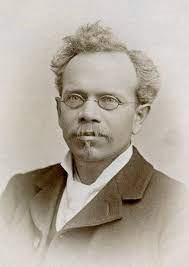 “A Propitiation. - A propitiation is a sacrifice. The statement then is simply that Christ is set forth to be a sacrifice for the remission of our sins. ‘Once in the end of the world hath he appeared to put away sin by the sacrifice of himself.’ Hebrews 9:26. Of course the idea of a propitiation or sacrifice is that there is wrath to be appeased. But take particular notice that it is we who require the sacrifice, and not God. He provides the sacrifice. The idea that God’s wrath has to be propitiated in order that we may have forgiveness finds no warrant in the Bible. It is the height of absurdity to say that God is so angry with men that he will not forgive them unless something is provided to appease his wrath, and that therefore he himself offers the gift to himself, by which he is appeased … The heathen idea, which is too often held by professed Christians, is that men must provide a sacrifice to appease the wrath of their god. All heathen worship is simply a bribe to their gods to be favorable to them. If they thought that their gods were very angry with them, they would provide a greater sacrifice, and so human sacrifices were offered in extreme cases [Micah 6:6-8]. They thought, as the worshipers of Siva in India do today, that their god was gratified by the sight of blood.” (E.J. Waggoner, The Signs of the Times, Vol. 22, January 23, 1896).
“A Propitiation. - A propitiation is a sacrifice. The statement then is simply that Christ is set forth to be a sacrifice for the remission of our sins. ‘Once in the end of the world hath he appeared to put away sin by the sacrifice of himself.’ Hebrews 9:26. Of course the idea of a propitiation or sacrifice is that there is wrath to be appeased. But take particular notice that it is we who require the sacrifice, and not God. He provides the sacrifice. The idea that God’s wrath has to be propitiated in order that we may have forgiveness finds no warrant in the Bible. It is the height of absurdity to say that God is so angry with men that he will not forgive them unless something is provided to appease his wrath, and that therefore he himself offers the gift to himself, by which he is appeased … The heathen idea, which is too often held by professed Christians, is that men must provide a sacrifice to appease the wrath of their god. All heathen worship is simply a bribe to their gods to be favorable to them. If they thought that their gods were very angry with them, they would provide a greater sacrifice, and so human sacrifices were offered in extreme cases [Micah 6:6-8]. They thought, as the worshipers of Siva in India do today, that their god was gratified by the sight of blood.” (E.J. Waggoner, The Signs of the Times, Vol. 22, January 23, 1896).
2. "Therefore speak unto them, and say unto them, Thus saith the Lord GOD; Every man of the house of Israel that setteth up his idols in his heart, and putteth the stumblingblock of his iniquity before his face, and cometh to the prophet; I the LORD will answer him that cometh according to the multitude of his idols; That I may take the house of Israel in their own heart, because they are all estranged from me through their idols." (Ezekiel 14:4-5)
"God did not design that the people should do any fighting. He led them through the wilderness, in order that they might not see war [Ex. 13:17-18]. Yet He knew that if they went the way that they did, the Egyptians would surely pursue them. The children of Israel never had any greater need of fighting than they did when the Egyptians closed in on them by the Red Sea; yet the word then was, 'The Lord shall fight for you, and ye shall hold your peace' [Ex. 14:14]. It may be said that the reason why the Lord did not wish them to see war was because they were as yet unprepared for fighting; but we must remember that on other occasions when they had many trained warriors, God often delivered them without their striking a blow. When we consider the circumstances of their deliverance from Egypt-how it was all accomplished by the direct power of God, without any human power, their part being only to follow and obey His word-we must be convinced that it was not according to the plan of God that they should do any fighting, even in self-defence." (E.J. Waggoner, Present Truth UK, September 24, 1896, p. 612)
“'But the children of Israel did fight throughout all their natural existence, and under God's direction, too,' it will be urged. That is very true, but it does not at all prove that it was God's purpose that they should fight. We must not forget that 'their minds were blinded' by unbelief, so that they could not perceive the purpose of God for them. They did not grasp the spiritual realities of the kingdom of God, but were content with shadows instead; and the same God who bore with their hardness of heart in the beginning, and strove to teach them by shadows, when they would not have the substance, still remained with them, compassionately considerate of their infirmities. God Himself suffered [reluctantly permitted] them, because of the hardness of their hearts, to have a plurality of wives, and even laid down rules regulating polygamy, in order to diminish as far as possible the resulting evils, but that does not prove that He designed it for them. We well know that 'from the beginning it was not so.' [Matt. 19:18]. So when Jesus forbade His followers to fight in any cause whatever, He introduced nothing new, any more than when He taught that a man should have but one wife, and should cleave to her as long as he lived He was simply enunciating first principles-preaching a thorough reformation." (Present Truth UK, January 7, 1897, p. 4, words in brackets added)
Andrew Murray (1828-1917)
"And He [Jesus] came down with them and stood on a level place with a crowd of His disciples and a great multitude of people from all Judea and Jerusalem, and from the seacoast of Tyre and Sidon, who came to hear Him and be healed of their diseases, as well as those who were tormented with unclean spirits. And they were healed. And the whole multitude sought to touch Him, for power went out from Him and healed them all." (Luke 6:17-19)
"... God anointed Jesus of Nazareth with the Holy Spirit and with power, who went about doing good and healing all who were oppressed by the devil, for God was with Him." (Acts 10:38)
"Be sober, be vigilant; because your adversary the devil walks about like a roaring lion, seeking whom he may devour." (1 Peter 5:8)
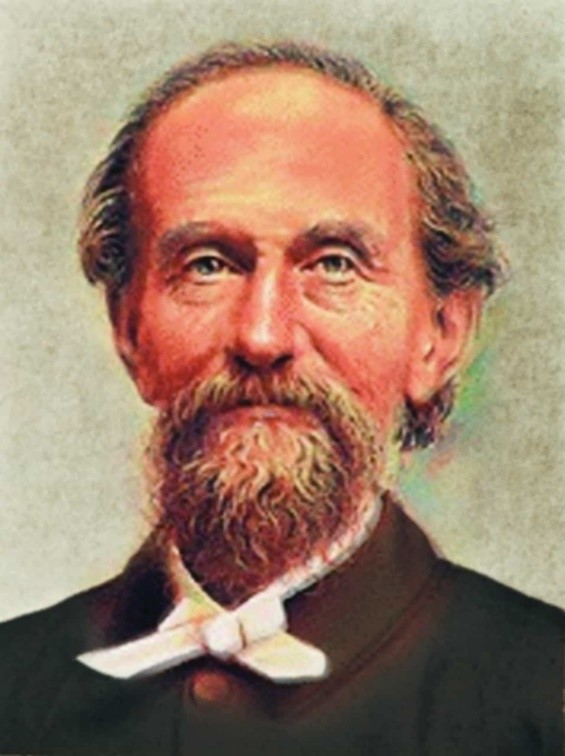
“The Lord spoke to the disciples of divers sufferings which they should have to bear, but when He speaks of sickness, it is always as of an evil caused by sin and Satan, and from which we should be delivered. Very solemnly He declared that every disciple of His would have to bear his cross (Matt. 16:24), but He never taught one sick person to resign himself to be sick. Everywhere Jesus healed the sick, everywhere He dealt with healing as one of the graces belonging to the kingdom of heaven. Sin in the soul and sickness in the body both bear witness to the power of Satan, and 'the Son of God was manifested that he might destroy the works of the devil' (I John 3:8). Jesus came to deliver men from sin and sickness that He might make known the love of the Father.” (Andrew Murray, Divine Healing, p. 9).
Henry B. Wilson (1870-1923)
1. “‘For I have no pleasure in the death of one who dies,’ says the Lord God. ‘Therefore turn and live!’” (Ezekiel 18:32)
“Since the children, as He calls them, are people of flesh and blood, Jesus Himself became like them and shared their human nature. He did this so that through His death He might destroy the Devil, who has the power over death.” (Hebrews 2:14)
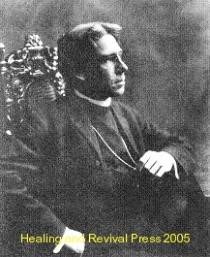 “He is a God of love; a God who cannot do evil; who would not do evil even that good might result. To attribute to Him the sending of disease is but to dishonor Him … God has not sent evil to bring about strengthening. The evil has fallen through some cause or from some source that is contrary to His will for man.”(Henry B. Wilson, Does Christ Still Heal? p. 16. 37).
“He is a God of love; a God who cannot do evil; who would not do evil even that good might result. To attribute to Him the sending of disease is but to dishonor Him … God has not sent evil to bring about strengthening. The evil has fallen through some cause or from some source that is contrary to His will for man.”(Henry B. Wilson, Does Christ Still Heal? p. 16. 37).
“The false theology that God is, in some mysterious way, connected with the sending of sickness and pain and death, blotted out His true character as a God of love many centuries ago, and this theology has become so imbedded in the system of the Church and her teachings that it requires a strongminded minister or priest to extricate himself from it and practice and teach the simple acts and words of Christ the great healer, who still heals.” (Henry B. Wilson “Mr. Hickson's Healing Mission” in The Nazarene: Presenting the Message of Healing in Christ, Vol. 4-6, p. 10, 1919).
“There is a darkness that comes into every life, human or spiritual, that sins against love. The punishment is not inflicted by the injured one, but is automatic, and self-imposed. God is Light and in Him is no darkness at all.” (Henry B. Wilson “Losing the Lord’s Prayer” in The Nazarene: A Magazine of Healing, According to the Methods of Jesus, Vol. 7, p. 7, 1922).
2. “But I say to you who hear: Love your enemies, do good to those who hate you, bless those who curse you, and pray for those who spitefully use you. To him who strikes you on the one cheek, offer the other also … love your enemies, do good, and lend, hoping for nothing in return; and your reward will be great, and you will be sons of the Most High. For He is kind to the unthankful and evil. Therefore be merciful, just as your Father also is merciful.” (Luke 6:27-29, 35, 36)
“How unwarranted the thought of linking that will [God’s will] with anything that makes for physical pain, disease, sorrow and death. God has not one plan for His will in heaven, and another plan for those of us while we are still on earth. God’s will for man as well as for spiritual beings has behind it always the desire for the expression of a perfect Love-a perfect self-giving. We shall never fully realize the character of God until we know that He is always giving Himself to each one of us. This was the revelation Jesus gave of the true character of the Father.” (Henry B. Wilson “Losing the Lord’s Prayer” in The Nazarene: A Magazine of Healing, According to the Methods of Jesus, Vol. 7, p. 8, 1922).
George Fifield (1859 – 1926)
1. “ … God was in Christ reconciling the world to Himself, not imputing their trespasses to them, and has committed to us the word of reconciliation.” (2 Corinthians 5:19)
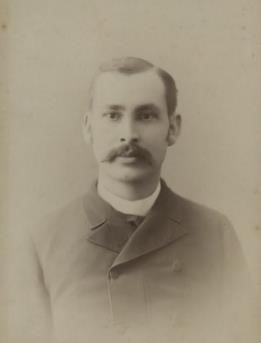 “God does not need to be reconciled to man, for, like the mother’s love, His love ever follows us, even when we are in the downward way, seeking to bring us back to Him. But man needs to be reconciled to God. In some way there must be an atonement made. Not that God’s wrath must be satisfied, so that He will look with favor upon offending man, but that God’s love must be so manifest, in spite of the existence of suffering and sin, that men will turn their hearts toward Him, as the flower toward the sun … The word ‘atonement’ means at-one-ment. Sin had brought misery, and misery had brought a misunderstanding of God’s character. Thus men had come to hate God instead of loving Him; and hating Him, the one Father, men also hated man, their brother. Thus, instead of the one family and the one Father, men were separated from God and from each other, and held apart by hatred and selfishness. There must be an atonement. An atonement can be made only by God’s so revealing his love, in spite of sin and sorrow, that men’s hearts will be touched to tenderness; and they, being delivered from Satan’s delusions, may see how fully and terribly they have misunderstood the divine One, and so have done despite to the Spirit of his grace. Thus they may be led, as returning brethren, to come back to the Father’s house in blissful unity. The atonement is not to appease God’s wrath so that man dare come to Him but it is to reveal His love so that they WILL come to Him. It was not Christ reconciling God unto the world, but God in Christ reconciling the world unto himself. It is nowhere said that God needed to be reconciled unto us; he says, 'I have not forsaken you, but you have forsaken me.'” (George Fifield, God Is Love, 1897, pp. 46, 48).
“God does not need to be reconciled to man, for, like the mother’s love, His love ever follows us, even when we are in the downward way, seeking to bring us back to Him. But man needs to be reconciled to God. In some way there must be an atonement made. Not that God’s wrath must be satisfied, so that He will look with favor upon offending man, but that God’s love must be so manifest, in spite of the existence of suffering and sin, that men will turn their hearts toward Him, as the flower toward the sun … The word ‘atonement’ means at-one-ment. Sin had brought misery, and misery had brought a misunderstanding of God’s character. Thus men had come to hate God instead of loving Him; and hating Him, the one Father, men also hated man, their brother. Thus, instead of the one family and the one Father, men were separated from God and from each other, and held apart by hatred and selfishness. There must be an atonement. An atonement can be made only by God’s so revealing his love, in spite of sin and sorrow, that men’s hearts will be touched to tenderness; and they, being delivered from Satan’s delusions, may see how fully and terribly they have misunderstood the divine One, and so have done despite to the Spirit of his grace. Thus they may be led, as returning brethren, to come back to the Father’s house in blissful unity. The atonement is not to appease God’s wrath so that man dare come to Him but it is to reveal His love so that they WILL come to Him. It was not Christ reconciling God unto the world, but God in Christ reconciling the world unto himself. It is nowhere said that God needed to be reconciled unto us; he says, 'I have not forsaken you, but you have forsaken me.'” (George Fifield, God Is Love, 1897, pp. 46, 48).
2. "And now, Israel, what doth the LORD thy God require of thee, but to fear the LORD thy God, to walk in all His ways, and to love Him, and to serve the LORD thy God with all thy heart and with all thy soul, To keep the Commandments of the LORD, and His statutes, which I command thee this day for thy good?" (Deuteronomy 10:12, 13)
“Thus every attribute of God is simply the attribute of love. And love includes the all in all of our Father. His laws are simply the laws of a kind Father, intended to promote the happiness of his children. They are not arbitrary. It is not that God, sitting up on some high throne, said to mankind, You do thus and so, and I will let you live; but you do otherwise, and I will kill you. God does not kill. He is the Fountain of life. His laws are not so simply because he said so, but even so because they were so. In infinite wisdom he foreknew the underlying principles of happiness and life, and in infinite love he foretold these principles, saying, This way, my child; here is the joy and peace and life forevermore. Don't go that way. That way is misery and death. Every precept of the Decalogue, which is the epitome of his law, directly speaks from this principle.” (George Fifield, General Conference Daily Bulletin, February 19, 1897, page 90)
Charles H. Usher (1865-1942)
“And the Lord said to Satan, ‘Behold, all that he [Job] has is in your power; only do not lay a hand on his person.’ So Satan went out from the presence of the Lord … While he [Job] was still speaking, another also came and said, ‘The fire of God fell from heaven and burned up the sheep and the servants, and consumed them; and I alone have escaped to tell you!’” (Job 1:12, 16)
“Again the anger of the Lord was aroused against Israel, and He moved David against them to say, ‘Go, number Israel and Judah.’” (2 Samuel 24:1)
“Now Satan stood up against Israel, and moved David to number Israel.” (1 Chronicles 21:1. *Note: In this verse Ezra [the scribe and priest] is writing and referring to what is really going on in 2 Samuel 24:1 above)

“‘Blame God’ is the devil’s subterfuge: and how many thousands of Christians today attribute to God what Satan is doing. If calamity comes to them, they say ‘it is God’s hand,’ and they either passively yield or else they rebel, with the result that the heart is heavy and the spirit dulled and oppressed.” (Charles H. Usher, Satan: A Defeated Foe, p. 53, published in 1964).
Martin Sindell (1867-1945)
“He who does not love does not know God, for God is love.” (1 John 4:8)
“Love does no harm to a neighbor; therefore love is the fulfillment of the law.” (Romans 13:10)
.jpg)
“The Bible tells us God made everything, ‘and behold it was very good.’ We do not speak or think of sickness and suffering as good; no, we try to get rid of them as quickly as possible. Therefore we have a right to conclude that the divine Being does not impose sickness or sorrow upon His children.” (Martin Sindell, Romance and Revolution (Eau Claire, WI: Paramount Publishing Company, 1918), p. 220).
Finis Dake (1902-1987)
“You are of your father the devil, and the desires of your father you want to do. He was a murderer from the beginning, and does not stand in the truth, because there is no truth in him. When he speaks a lie, he speaks from his own resources, for he is a liar and the father of it.” (John 8:44)

“Satan brings about the actual happenings of accidents, sickness, disease, and calamity, then causes men to think that God brings these things to pass. Thus He [God] is blamed erroneously for the work of the devil by millions, even so-called Christians who should know better.” (Finis Dake, Dake’s Annotated Reference Bible, p. 522).
Joe Blair (Published 1986)
“However, their minds were hardened, for to this day the same veil is still there when they read the old covenant. Only in union with the Messiah is that veil removed. Yet even to this day, when Moses is read, a veil covers their hearts. But whenever a person turns to the Lord, the veil is removed. Now the Lord is the Spirit, and where the Lord’s Spirit is, there is freedom. As all of us reflect the glory of the Lord with unveiled faces, we are becoming more like him with ever-increasing glory by the Lord’s Spirit.” (2 Corinthians 3:14-18)

“The context of Scripture will help us to understand how to put some Old Testament passages in perspective with God’s love. The ultimate way, however, is to look to Christ. Christ is the ultimate revelation of God Himself. Christ is the Word of God (John 1:1-14). So everything said or thought about God must be examined in the light of Jesus Christ. If I have an interpretation which is contrary to the nature of God as revealed in Christ, then I must reinterpret, because God is faithful, and He does not contradict Himself.” (Joe Blair, When Bad things Happen, God Still Loves, p. 96, 1986).
Fred T. Wright (1925-1997)
“And he [Moses] said to them, ‘Thus says the Lord God of Israel: ‘Let every man put his sword on his side, and go in and out from entrance to entrance throughout the camp, and let every man kill his brother, every man his companion, and every man his neighbor.’” (Deuteronomy 32:27)
“He shall judge between the nations, And rebuke many people; They shall beat their swords into plowshares, And their spears into pruning hooks; Nation shall not lift up sword against nation, Neither shall they learn war anymore.” (Isaiah 2:4)
"... Then they came and laid hands on Jesus and took Him. And suddenly, one of those who were with Jesus stretched out his hand and drew his sword, struck the servant of the high priest, and cut off his ear. But Jesus said to him, 'Put your sword in its place, for all who take the sword will perish by the sword.'" (Matthew 26:50-52)
 “It follows then that it was never in God’s purpose that Israel or anyone else should ever carry the sword. It has no place in His character and corresponding methods, and therefore is to find no acceptance in the character and behavior of His people … The institution of this form of defense was entirely the people’s work, the expression of their having more faith in themselves than in God. It was the establishment of human principles and procedures in place of the divine. Therefore in every instance where the Israelites went to war or executed the wrongdoers among themselves, their actions were not a revelation of the character of God. There has been a universal readiness to conclude that they were, on the erroneous assumption that the people were simply doing as the Lord told them … The purpose here is to establish that it was in spite of God’s best efforts to the contrary that the sword became an establishment in the camp of Israel. The recognition of this truth is essential to understanding the directives given to Israel which have been viewed for too long as an indication that He was personally using them as executioners. If God’s will had been respected, they would never have carried the sword, the Levites would never have executed those who worshiped the golden calf, nor would there have been the many bloody battles whereby they gained possession of the land. God would have been left free to do His work for them according to the eternal principles of righteousness. The command given by God at various times in connection with these slayings makes it difficult for the average person to see this. It is argued that God was personally and directly involved, that He decided the particular sentence, and then ordered its execution. This certainly appears to be a watertight argument, but it still leaves those terrible contradictions. God does not give orders contrary to the principles of eternal rectitude and righteousness. Therefore more study is required to remove those seeming inconsistencies. This may be done with the sweet consciousness that there are no contradictions in the Word of God and that God’s character is perfectly consistent in all its behavior … The commands given by God were to a people who had already chosen the way they would go and who, if left completely unguided, would use those weapons in the worst way. God’s commands were designed to minimize the evil effects of what they had chosen to do. In this, He was acting out the role of a Saviour. The people insisted on taking up the sword. Now God would try to save them from its worst effects.” (Fred Wright, Behold Your God, 510-512).
“It follows then that it was never in God’s purpose that Israel or anyone else should ever carry the sword. It has no place in His character and corresponding methods, and therefore is to find no acceptance in the character and behavior of His people … The institution of this form of defense was entirely the people’s work, the expression of their having more faith in themselves than in God. It was the establishment of human principles and procedures in place of the divine. Therefore in every instance where the Israelites went to war or executed the wrongdoers among themselves, their actions were not a revelation of the character of God. There has been a universal readiness to conclude that they were, on the erroneous assumption that the people were simply doing as the Lord told them … The purpose here is to establish that it was in spite of God’s best efforts to the contrary that the sword became an establishment in the camp of Israel. The recognition of this truth is essential to understanding the directives given to Israel which have been viewed for too long as an indication that He was personally using them as executioners. If God’s will had been respected, they would never have carried the sword, the Levites would never have executed those who worshiped the golden calf, nor would there have been the many bloody battles whereby they gained possession of the land. God would have been left free to do His work for them according to the eternal principles of righteousness. The command given by God at various times in connection with these slayings makes it difficult for the average person to see this. It is argued that God was personally and directly involved, that He decided the particular sentence, and then ordered its execution. This certainly appears to be a watertight argument, but it still leaves those terrible contradictions. God does not give orders contrary to the principles of eternal rectitude and righteousness. Therefore more study is required to remove those seeming inconsistencies. This may be done with the sweet consciousness that there are no contradictions in the Word of God and that God’s character is perfectly consistent in all its behavior … The commands given by God were to a people who had already chosen the way they would go and who, if left completely unguided, would use those weapons in the worst way. God’s commands were designed to minimize the evil effects of what they had chosen to do. In this, He was acting out the role of a Saviour. The people insisted on taking up the sword. Now God would try to save them from its worst effects.” (Fred Wright, Behold Your God, 510-512).
*Note: This concept can be hard to grasp, but Mr. Wright explains how this works in more detail by giving a practical illustration called “The Hunter Illustration” from pages 328-333 of his book Behold Your God. This section of the book can be viewed here at characterofgod.org and is provided by Ray Foucher.
David Yonggi Cho (1936-2021)
"But the mercy of the LORD is from everlasting to everlasting On those who fear Him, And His righteousness to children’s children." (Psalm 103:17)
"For God so loved the world that He gave His only begotten Son, that whoever believes in Him should not perish but have everlasting life. For God did not send His Son into the world to condemn the world, but that the world through Him might be saved." (John 3:16, 17)
 “This God who loves us with His great breadth and depth of love is really a good God. Whenever we say God is good, the devil feels pain, but glory is given to God. Today, in so many pulpits, God is misrepresented. Some ministers only present Him as a God who is waiting for sinners to make a mistake so He can judge them with stern and fearful punishment.” (David Yonggi Cho, Salvation, Health & Prosperity: Our Threefold Blessings in Christ, p. 15).
“This God who loves us with His great breadth and depth of love is really a good God. Whenever we say God is good, the devil feels pain, but glory is given to God. Today, in so many pulpits, God is misrepresented. Some ministers only present Him as a God who is waiting for sinners to make a mistake so He can judge them with stern and fearful punishment.” (David Yonggi Cho, Salvation, Health & Prosperity: Our Threefold Blessings in Christ, p. 15).
Gary Hullquist (1948-present)
1. "The LORD has appeared of old to me, saying: 'Yes, I have loved you with an everlasting love; Therefore with lovingkindness I have drawn you.'" (Jeremiah 31:3)
 "The entire Christian world has taught that God will put up with sinners only so long, and then His patience runs out; He gets mad and angry with them, and then lets ‘em have it. What a pity. The truth is that God never loves the sinner less. Never." (Gary Hullquist, The Loving Wrath of God, p. 2).
"The entire Christian world has taught that God will put up with sinners only so long, and then His patience runs out; He gets mad and angry with them, and then lets ‘em have it. What a pity. The truth is that God never loves the sinner less. Never." (Gary Hullquist, The Loving Wrath of God, p. 2).
2. “Then Miriam and Aaron spoke against Moses because of the Ethiopian woman whom he had married; for he had married an Ethiopian woman … So the anger of the Lord was aroused against them, and He departed. And when the cloud departed from above the tabernacle, suddenly Miriam became leprous, as white as snow. Then Aaron turned toward Miriam, and there she was, a leper.” (Numbers 12:1, 9, 10)
“When Miriam and Aaron spoke against Moses, ‘the anger of the Lord was kindled against them; and He departed. And the cloud departed from off the tabernacle; and, behold, Miriam became leprous.” God’s ways are truly different from ours. When our anger is kindled against someone we move toward them, to attack, to strike out! But God moves away. He departs … And at the cross God personally showed how He will ultimately deal with sin … On the cross Jesus took the sinner’s place and God treated Him exactly as He will treat every sinner who ever lived. There our Saviour died the final death of complete separation from God: the equivalent of the second death. Jesus assumed the very position of the sinner who wants nothing of God and demands that He leave him alone. Sadly God leaves, and as He does, His sustaining, life-giving, protective power is withdrawn. Now nothing can save from the awful power of sin as it crushes the life forces into extinction. No wonder Jesus cried out, ‘My God, My God, why have You forsaken me?’ Why have you given me up? Why have you let me go? But it wasn’t at the hand of an offended God that Christ died. The Father didn’t slay His Son. Jesus did not say, ‘My God, why are you executing me?’ We may have gotten that impression … But the Bible often speaks of God as doing that which He permits. Because God is sovereign over the events of the entire universe, He also assumes full responsibility for what takes place within it. ‘We esteemed Him [Jesus] smitten, stricken of God and afflicted.’ [Isaiah 53:4]. We thought that God was smiting Him. But, in fact, ‘He was wounded for [or, by] our transgressions, He was bruised for [or, by] our iniquities.’ [Isaiah 53:5].” (Gary Hullquist, The Loving Wrath of God, pp. 9-11).
Ray Foucher (1953-present)
1. “But if they do not obey, I will utterly pluck up and destroy that nation,” says the LORD.” (Jeremiah 12:17)
“Let destruction come upon him unexpectedly, And let his net that he has hidden catch himself; Into that very destruction let him fall.” (Psalm 35:8)
 “Yes, God does destroy as the Bible plainly says He does, but He destroys in the sense of not restraining or preventing the natural consequences of man’s choice and actions from occurring.” (Ray Foucher, characterofgod.org, November 28, 2020).
“Yes, God does destroy as the Bible plainly says He does, but He destroys in the sense of not restraining or preventing the natural consequences of man’s choice and actions from occurring.” (Ray Foucher, characterofgod.org, November 28, 2020).
2. “Evil [not God] shall slay the wicked, And those who hate the righteous shall be condemned.” (Psalm 34:21)
“A big question that soon comes up in discussions about God’s character is: ‘does God kill?’ Even more important is the more specific question ‘does God kill with the Second Death?’ Again, in reference to Revelation 20:9, does God personally, actively and directly send fire to kill the lost? If we mix literal fire directly from God with the mental anguish that will be part of the experience, we have what is defined as torture. Torture - to inflict pain before execution - is something that civilized governments do not do. Torture is of no benefit to the one being tortured (obviously), to anyone looking on (to them it should arouse sympathy, even indignation) or to the torturer, although some may feel that it is satisfying to a vindictive spirit. Any physical torture being imposed would make the penalty more severe than simply ‘the wages of sin is death.’ – The wages of sin is not torture!
God personally and actively terminating the sinner’s life would demonstrate that death proceeds from Him, and that death is part of His way, His principles of government. That would mean that God brought death as the final solution to the sin problem. But we know that is not the case because death itself is an enemy of God. ‘The last enemy that will be destroyed is death.’ (1 Corinthians 15:26). Wouldn’t it be rather strange if the last enemy that should be destroyed in the Great Controversy - death - was destroyed by an act of God Himself causing death? God destroying death by using it as the final solution makes no sense whatsoever! That would establish death as a tool God uses to solve issues. Wouldn’t death be more effectively destroyed (even in the sense of showing that it was never necessary in the first place) by God showing that death was never part of His plan? The final, end result of sin is death. The Bible says where death comes from:
‘Then when lust hath conceived, it bringeth forth sin: and sin, when it is finished, bringeth forth death.’ (James 1:15).
Sin brings forth death; that is its source. If we say that, in the end, the source of death is God, then what does that make God? Consider what was said to Adam and Eve in the Garden of Eden:
‘But of the tree of the knowledge of good and evil, thou shalt not eat of it: for in the day that thou eatest thereof thou shalt surely die.’ (Genesis 2:17).
Was that a threat or a warning? It makes a difference. If I tell you of danger from something or someone else, that is giving you a warning. However, if I tell you of possible danger coming from me - that is a threat. God could never have won the love and loyalty of His created beings by threatening them with force. His ‘weapons’ are love and truth. God was saying either: ‘If you eat from that tree, there will be negative consequences and I don’t want you to experience that’ (a warning). Or ‘If you eat from that tree, I will kill you.’ (Sounds pretty harsh but that is exactly what it would amount to - a dire threat.) As we well know, much can be learned from the tone of voice in which words are said. Unfortunately, we don’t get that in reading Genesis. But just think of it - God had just created Adam and Eve; He made everything perfect; designed everything for their happiness. Then He said to them basically ‘do it My way, obey Me or I will kill you’ (at least eventually). Does that seem to fit? Hardly!” (Ray Foucher, The Lake of Fire and the Second Death, pp. 36-39).
3. “Behold, I set before you today a blessing and a curse: the blessing, if you obey the commandments of the Lord your God which I command you today; and the curse, if you do not obey the commandments of the Lord your God, but turn aside from the way which I command you today, to go after other gods which you have not known.” (Deuteronomy 11:26-28)
“In the unbiblical legal model of how God and His law are understood in traditional Christianity, God arbitrarily imposed laws and determined punishments for violations which are called sins. Since He is a God of justice, evil stirs up His wrath which must be appeased by a sacrifice including the shedding of blood. Those who finally reject salvation come under the awful curse of God Who will finally take vengeance by smiting sinners with fire from heaven – the second death. A sinner whose guilty conscience brings conviction for his sinfulness can confess and be granted forgiveness because the ransom price has been provided to legally cancel the debt. The propitiation brings atonement for sins which are then blotted from the record books of heaven. The repentant sinner, by faith, is justified and declared to be righteous. Having received salvation, he grows in sanctification towards perfection and, in the final investigative judgment, will not come under condemnation.
However, in the biblical healing model of how God and His law should be understood, God designed laws as the basis of life, violations of which have intrinsic, natural consequences leading towards death. Those who rebel against His law of love will exhibit that rebellion in unrighteous acts – sins. This state of sinfulness causes condemnation in the conscience and has punishment built into it. When a person persists in rejection of and distrust in God, God honors that free-will choice and in wrath leaves the sinner to the consequences of his choices. If guilt brings conviction enough to cause a sinner to choose repentance, he will receive forgiveness which has already been granted by God to all. A realization of the grace and glory (character) of God to provide salvation leads the sinner to trust (have faith in) God; to be justified or set right with Him – what the Bible calls atonement – the condition of being ‘at-one’ with God. The repentant sinner then, as He beholds the righteousness of Christ, grows in sanctification towards perfection of character. Christ’s life (typified by His blood) and sacrifice frees (ransoms) us from what held us captive – the lies of Satan about the character of God and our own sinful natures.” (Ray Foucher, characterofgod.org, January 1, 2022).
Jay A. Schulberg (1953-present)
“For the Father judges no one, but has committed all judgment to the Son” (John 5:22)
“You judge according to the flesh; I [Jesus] judge no one.” (John 8:15)
“And if anyone hears My words and does not believe, I do not judge him; for I did not come to judge the world but to save the world. He who rejects Me, and does not receive My words, has that which judges him—the word that I have spoken will judge him in the last day.” (John 12:47, 48)
“Then Paul and Barnabas waxed bold, and said, It was necessary that the word of God should first have been spoken to you: but seeing ye put it from you, and judge yourselves unworthy of everlasting life, lo, we turn to the Gentiles.” (Acts 13:46)
 “When considering the judgment, it will be helpful first to determine who is being judged and who is doing the judging. Going back to the conversation between Eve and the serpent in the garden of Eden, recall that the serpent implanted in Eve’s mind a question about God’s fairness, goodwill, and trustworthiness. With some honest consideration, it will become apparent that it was not humanity that was put on trial there—it was God. It can be difficult for us to grasp the idea of God allowing himself to be put on trial. Nevertheless, this perspective is the only viable one that can be arrived at based on an in-depth study of the Bible. We have been ignorantly judging God since that first dialogue with the devil. Have we given him a fair trial? While we are misguided in our inclination to place ourselves at the center of the judgment, we are not quite exempt when it comes to being subjected to judgment. God has not placed us on trial; however, we are especially adept at judging and condemning ourselves. Jesus said that the words he spoke are life. We have the choice to either accept or reject his words. If his words really are life, and we reject them, haven’t we then made a judgment with negative consequences to ourselves? God does not pass judgment as takes place in a court of law. When we are determined to continue on the road to selfcondemnation and death, God can do nothing more for us except to reluctantly ratify our decision.” (Jay A. Schulberg, Acts of Our Gentle God, p. 94).
“When considering the judgment, it will be helpful first to determine who is being judged and who is doing the judging. Going back to the conversation between Eve and the serpent in the garden of Eden, recall that the serpent implanted in Eve’s mind a question about God’s fairness, goodwill, and trustworthiness. With some honest consideration, it will become apparent that it was not humanity that was put on trial there—it was God. It can be difficult for us to grasp the idea of God allowing himself to be put on trial. Nevertheless, this perspective is the only viable one that can be arrived at based on an in-depth study of the Bible. We have been ignorantly judging God since that first dialogue with the devil. Have we given him a fair trial? While we are misguided in our inclination to place ourselves at the center of the judgment, we are not quite exempt when it comes to being subjected to judgment. God has not placed us on trial; however, we are especially adept at judging and condemning ourselves. Jesus said that the words he spoke are life. We have the choice to either accept or reject his words. If his words really are life, and we reject them, haven’t we then made a judgment with negative consequences to ourselves? God does not pass judgment as takes place in a court of law. When we are determined to continue on the road to selfcondemnation and death, God can do nothing more for us except to reluctantly ratify our decision.” (Jay A. Schulberg, Acts of Our Gentle God, p. 94).
Floyd Phillips (1955-present)
1. “For we know Him who said, ‘Vengeance is Mine, I will repay,’ says the Lord. And again, ‘The LORD will judge His people.’ (Hebrews 10:30)
“The Spirit of the Lord God is upon Me, Because the Lord has anointed Me To preach good tidings to the poor; He has sent Me to heal the brokenhearted, To proclaim liberty to the captives, And the opening of the prison to those who are bound; To proclaim the acceptable year of the Lord, And the day of vengeance of our God; To comfort all who mourn.” (Isaiah 61:1, 12)
 “Vengeance takes on a larger dimension than just wrath which simply involves letting go of those rejecting God’s protection in their lives. Vengeance includes God’s version of justice – which is always restorative, not punitive. Thus vengeance in a strange way is how, at least in our jargon, God ‘gets even’ with His enemies – by reversing all the curses brought into our lives by sin and selfishness. Through God’s justice/righteousness He gets vengeance, either by winning over His enemies and transforming them into friends, or reluctantly letting go of those persistently refusing His offers of love, grace and mercy to the effects of their choices.
“Vengeance takes on a larger dimension than just wrath which simply involves letting go of those rejecting God’s protection in their lives. Vengeance includes God’s version of justice – which is always restorative, not punitive. Thus vengeance in a strange way is how, at least in our jargon, God ‘gets even’ with His enemies – by reversing all the curses brought into our lives by sin and selfishness. Through God’s justice/righteousness He gets vengeance, either by winning over His enemies and transforming them into friends, or reluctantly letting go of those persistently refusing His offers of love, grace and mercy to the effects of their choices.
This does not mean He changes who He is inside; He never does that. What it means is that when there is no further possibility left inside us to respond to His kindness, in respect of our freedom of choice He withdraws His protection from our life because our choices have demanded it. To do otherwise would be to impose His will on us, which in reality would only destroy our ability to respond to His love. ... God will never settle for anything less than friendship based on love through appreciation of His beauty of character. It is impossible to foster friendship when there is threat of retaliation should one choose to withdraw. True love requires complete freedom to reject it without any threat of punishment should one choose to do so. This is at the very core of the nature of God’s government.
It can be easy to be distracted by language used by prophets and Bible writers that make God appear to be a punishing, vengeful God relying on threats to intimidate people into submission. Yet if we stick to the core truth that the only accurate revelation of God is in Jesus Christ, we can begin to see how much of Scripture is reflective of perceptions of human beings about God more than the truth as it is in Jesus. Any discrepancies between the two must always be answered by Jesus’ version of God over everything that appears to contradict what He revealed and demonstrated.
… God’s vengeance then, is when His reputation is vindicated as light exposes all the lies about Him and are completely discredited and debunked. This is God’s judgment. All the lies insinuating that God has a dark side, that God has to resort to violence, threats, fear, intimidation or even deception in order to overcome the power of evil – all must be exposed as fraudulent and baseless. All the slander against God’s reputation must be seen clearly for what it really is so that trust in God and His ways can be forever established without any lingering fear to contaminate it. … Therefore ‘If your enemy is hungry, feed him. If he is thirsty, give him a drink; for in doing so, you will heap coals of fire on his head. Don’t be overcome by evil, but overcome evil with good.’ (Romans 12:20-21). When evil is at last completely annihilated with good, God’s vengeance will be accomplished. Only as we are willing to embrace the startling truth that Jesus is the exclusive revelation of God and His ways, and that God is no more violent or threatening or retaliating than was Jesus when He lived here on earth — only then can we begin to see with new eyes and perceive with our hearts, that the way God gets vengeance and destroys His enemies is by what comes out of His mouth. And when God speaks, what comes out of His mouth is what is in His heart, which is LOVE and only LOVE.” (Floyd Phillips, Vengeance, characterofgod.org).
2. “Yet it pleased the Lord to bruise Him [Jesus]; He has put Him to grief. When You make His soul an offering for sin, He shall see His seed, He shall prolong His days, and the pleasure of the Lord shall prosper in His hand.” (Isaiah 53:10)
“Many will object that until the demands of a broken law are satisfied, fellowship is impossible to be restored. But we must realize that God's laws are not arbitrary but are creation principles that operate on cause and effect, not by rewards and punishments imposed artificially. When this correction is installed in our logic we can begin to see more clearly how salvation and the cross of Christ are intended to reconcile us to God, not appease an offended deity angry over broken rules.
... By letting us unleash all the venom of our world's animosity against God on Jesus, He knew that the lies behind all that animosity would be inevitable be exposed and would at last be discredited. This is what was pleasing about all the evil that happened to Jesus from God's perspective, not that it would placate some pagan notion that God was furious at sinners but that sinners would come to see the lies that kept them angry and hostile towards God ... Jesus came to reveal the trustworthiness of God's heart, and because He did so in such a spectacular way He exposed all the deceptions of the enemy. He has proven that He can be trusted to represent God truthfully and consistently and that all of Satan's allegations are groundless, false and sinister. This is the method by which God achieves victory over evil – by making Himself vulnerable instead of using His infinite power to overwhelm His enemies. By making His own soul a sacrifice to allow sin to be exposed, He defeats the power of evil and the true power of love is finally seen.” (Floyd Phillips, It Pleased God, biblicalconcepts.blogspot.com, August 12, 2018).
Greg Boyd (1957-present)
“… And the Lord struck the child that Uriah’s wife bore to David, and it became ill. David therefore pleaded with God for the child, and David fasted and went in and lay all night on the ground. So the elders of his house arose and went to him, to raise him up from the ground. But he would not, nor did he eat food with them. Then on the seventh day it came to pass that the child died.” (2 Samuel 12:15-18)
 “The NT teaches us to base all of our thinking about God on Jesus. In contrast to the way God spoke in the past, the author of Hebrews teaches, Jesus is the one and only ‘exact representation of God’s being’ (Heb. 1:3). He is the one Word of God (Jn 1:1) and the one image of God (Col. 1:15). When Philip asked Jesus to show them God the Father, Jesus said, ‘If you see me, you see the Father. Why then do you ask, ‘Show us the Father’?’ (Jn 14:7-9). John 1:17-18 even suggests that no one really knew God until Jesus … The bottom line is that, however we explain violent portraits of God in the OT, and even if we can’t explain them, we must never allow anything we find in the OT to compromise or in any way qualify the revelation of God we have in Christ. Jesus isn’t part of what God is like, the fullness of God’s deity was in Christ (Col. 2:9). And Jesus reveals a God who chooses to die on behalf of enemies rather than to use force against them … Whenever we find portraits of God in the OT that fall below the character of God revealed in Christ — all portraits that have God commanding or engaging in violence — we should see a reflection of the cross in them. That is, we should view these portraits as an example of God humbly stooping to enter the limited and fallen worldview of the authors. They reflect God meeting people where they are, working through the limited and fallen worldviews that they hold, in order to bring humanity to the place where he could reveal what he is really like — which is what he does in Christ.
“The NT teaches us to base all of our thinking about God on Jesus. In contrast to the way God spoke in the past, the author of Hebrews teaches, Jesus is the one and only ‘exact representation of God’s being’ (Heb. 1:3). He is the one Word of God (Jn 1:1) and the one image of God (Col. 1:15). When Philip asked Jesus to show them God the Father, Jesus said, ‘If you see me, you see the Father. Why then do you ask, ‘Show us the Father’?’ (Jn 14:7-9). John 1:17-18 even suggests that no one really knew God until Jesus … The bottom line is that, however we explain violent portraits of God in the OT, and even if we can’t explain them, we must never allow anything we find in the OT to compromise or in any way qualify the revelation of God we have in Christ. Jesus isn’t part of what God is like, the fullness of God’s deity was in Christ (Col. 2:9). And Jesus reveals a God who chooses to die on behalf of enemies rather than to use force against them … Whenever we find portraits of God in the OT that fall below the character of God revealed in Christ — all portraits that have God commanding or engaging in violence — we should see a reflection of the cross in them. That is, we should view these portraits as an example of God humbly stooping to enter the limited and fallen worldview of the authors. They reflect God meeting people where they are, working through the limited and fallen worldviews that they hold, in order to bring humanity to the place where he could reveal what he is really like — which is what he does in Christ.
… Since Jesus reveals what God is always like, we should read the Bible with the understanding that God may appear to do what he merely allows. In my book [The Crucifixion of the Warrior God], I have two chapters of material demonstrating that, as a matter of fact, biblical authors frequently depict God doing things when the narrative itself makes it clear God merely allowed it. For example, in Ex. 12 Yahweh says he will slay the firstborn children of Egypt, but the narrative makes it clear that he simply did not prevent ‘the destroyer’ (12:23) from killing the children. And if we base all of our thinking about God on Jesus, we should envision God weeping whenever he feels he must allow evil to run its course, since Jesus weeps as he announces a judgment coming on Jerusalem (Lk. 19).
In this light, I view all judgments involving violence to be a matter of God withdrawing his protection — always with a grieving heart — and thereby allowing the ever-present ‘thief’ who comes ‘only to kill, steal and destroy’ (Jn 10:10) to carry out the evil that is in his heart. I thus believe that, in response to David’s sin, God allowed Satan or some other destructive cosmic power to take the life of his newborn [2 Samuel 12]. Because the biblical author did not have the full revelation of God that we have in Christ, he ascribed this violence directly to God. But as we read this narrative in the light of Christ, I believe we should understand that this was something God merely felt he had to allow, and he did so with a grieving heart.
We find Paul re-reading the Old Testament in the light of Christ along these lines. In 1 Cor. 10:5 he refers to the ‘grumblers’ who were slain by the ‘the destroying angel’ in the OT — referring to the judgment of Korah and his followers when the earth opened up and some rebels fell into it and when fire came down from the sky and incinerated others. If you read the OT account of this judgment, however, there’s no mention of a destroyer. It simply looks like Yahweh did it. And I don’t doubt that the author of the OT narrative believed Yahweh did this. But in the light of Christ, Paul had more insight into how God judges than people in the OT had. With a grieving heart he allows evil to run its course, but he does not kill.” (Greg Boyd, Would God Kill a Baby To Teach Parents a Lesson? reknew.org, October 9, 2012).
Dr. Timothy Jennings (1961-present)
1. “Blessed are the undefiled in the way, Who walk in the law of the Lord! Blessed are those who keep His testimonies, Who seek Him with the whole heart! … So shall I keep Your law continually, Forever and ever. And I will walk at liberty, For I seek Your precepts.” (Psalm 119:1, 2, 44, 45)
“For if anyone is a hearer of the word and not a doer, he is like a man observing his natural face in a mirror; for he observes himself, goes away, and immediately forgets what kind of man he was. But he who looks into the perfect law of liberty and continues in it, and is not a forgetful hearer but a doer of the work, this one will be blessed in what he does.” (James 1:23-25)
 “As all Bible students know, Scripture tells us that God is love (1 John 4:8), but what many have not considered is that when God built His universe He built it to operate in harmony with His own nature of love. The construction protocol on which God built His universe is known as God’s law. And this law is the law of love, an expression of His nature and character [Isaiah 51:6, 7; Romans 13:10] ... Functionally, Paul describes this law as ‘love seeks not its own,’ or ‘love is not self-seeking’ (1 Corinthians 13:5). This means that love is selfless rather than selfish. Love is giving rather than taking and life is actually built, by God, to operate on this principle of giving. A simple example of this law in action is respiration. With every breath we breathe we give away carbon dioxide (CO2) to the plants, and the plants give back oxygen to us (the law of respiration). This is God’s design for life, a perpetual circle of free giving. It is an expression of God’s character of love, and life is built to operate on it. If you break this law, this circle of giving, by tying a plastic bag over your head and selfishly hoarding your body’s CO2, you break the design protocol for life, and the result is death. ‘The wages [result] of sin is death’ (Romans 6:23). This circle of giving is the law that God constructed life to operate on.” (Dr. Timothy Jennings, The Remedy Bible, Preface).
“As all Bible students know, Scripture tells us that God is love (1 John 4:8), but what many have not considered is that when God built His universe He built it to operate in harmony with His own nature of love. The construction protocol on which God built His universe is known as God’s law. And this law is the law of love, an expression of His nature and character [Isaiah 51:6, 7; Romans 13:10] ... Functionally, Paul describes this law as ‘love seeks not its own,’ or ‘love is not self-seeking’ (1 Corinthians 13:5). This means that love is selfless rather than selfish. Love is giving rather than taking and life is actually built, by God, to operate on this principle of giving. A simple example of this law in action is respiration. With every breath we breathe we give away carbon dioxide (CO2) to the plants, and the plants give back oxygen to us (the law of respiration). This is God’s design for life, a perpetual circle of free giving. It is an expression of God’s character of love, and life is built to operate on it. If you break this law, this circle of giving, by tying a plastic bag over your head and selfishly hoarding your body’s CO2, you break the design protocol for life, and the result is death. ‘The wages [result] of sin is death’ (Romans 6:23). This circle of giving is the law that God constructed life to operate on.” (Dr. Timothy Jennings, The Remedy Bible, Preface).
2. “Ye shall do no unrighteousness in judgment … but in righteousness shalt thou judge thy neighbour … [how?] … thou shalt love thy neighbour as thyself.” (Leviticus 19:15, 18)
“Justice and judgment are the habitation of thy throne: mercy and truth shall go before thy face.” (Psalm 89:14)
“Under imposed law models, there is nothing inherently wrong with breaking the law. Going 50-mph in a 45-mph zone doesn’t naturally result in any injury or harm to the violator of the law. The violator must be caught by the authorities, have their deeds recorded, their case presented before a judge, and then receive an arbitrarily determined penalty inflicted as punishment. This is human law, not Creator law. This is the way of sinful beings, not a sinless God. This idea of law is the basis of penal substitution theology. It is founded on a lie about God’s law and presents a view of God’s government that is functionally no different than sinful human governments.
In the penal view, God becomes the source of inflicted pain, suffering, and death. It is taught, in the penal view, that God’s use of power to torture and kill is ‘justice,’ because sin must be punished. Such bad theology is the fruit of accepting Satan’s lie about God’s law and that God, in order to be just, must punish sin. In this view, rather than God working to heal and save the spiritually terminal, God becomes the one from whom we need to be protected, resulting in theologies that have, as their function, the sole purpose of hiding and protecting us from God, rather than heal us to be fit to live in His presence. Consider the many ideas taught in Christianity that have, as their function, the purpose of hiding us from God. Why? Because people wrongly believe that if God saw their sin and their sinfulness, that He would be required to lash out with wrath and anger to inflict pain and suffering to punish them for their sin. This is exactly what Satan wants people to think, because this idea keeps people hiding themselves from God.
But David of old prayed, ‘search me and see the wicked way in me’. He didn’t want to hide his sinfulness from God, because he knew God wouldn’t punish him, but was the only One who could heal him, so he prayed, ‘create in me a clean heart and renew a right spirit within me.’ God’s end-time people are to present a message to the world that calls them back to worship the Designer, and to worship ‘him who made the heavens, earth, sea and foundations of water.’ (Rev. 14:7). This is a call to reject the dictator-views of God and embrace the Creator, Designer, and Builder of reality! This means we must reject imposed law and all the false penal legal theology upon which it is founded.” (Dr. Timothy Jennings, Penal Substitution versus Design Law—What’s the Difference?).
Troy Edwards (1963-present)
“If anyone defiles the temple of God, God will destroy him. For the temple of God is holy, which temple you are.” (1 Corinthians 3:17)
 “A study of the Bible shows us that God is only said to destroy when He removes His protective presence from the recipient of destruction (Psalm 145:20; Isa 64:6-7; 43:25-28; 2 Kings 13:22-23; Prov 1:24-28; Hosea 5:6). He is said to destroy when He ‘gives people up’ and allows their enemies to destroy them (Isa 34:2; 2 Chron 12:5-7; Hosea 11:8-9; Eze 21:31). Therefore, when reading any Bible passage, especially in the Old Testament, that appears to teach that God personally engaged in destructive behavior, it is best to interpret it in the permissive rather than in the causative.
“A study of the Bible shows us that God is only said to destroy when He removes His protective presence from the recipient of destruction (Psalm 145:20; Isa 64:6-7; 43:25-28; 2 Kings 13:22-23; Prov 1:24-28; Hosea 5:6). He is said to destroy when He ‘gives people up’ and allows their enemies to destroy them (Isa 34:2; 2 Chron 12:5-7; Hosea 11:8-9; Eze 21:31). Therefore, when reading any Bible passage, especially in the Old Testament, that appears to teach that God personally engaged in destructive behavior, it is best to interpret it in the permissive rather than in the causative.
Thankfully some Bible translators recognize this truth and render certain passages to reflect it. For example, in Isa 64:7 we read, ‘…. for thou hast hid thy face from us, and hast consumed us, because of our iniquities.’ Isaiah complained that God had consumed them. However, Isaiah also complained that God ‘hid His face.’ The ‘hiding’ of God’s face is defined in Scripture as the removal of His divine protection, thus allowing whatever forces of evil already poised to destroy to have their way (Num 6:24-27; Deut 31:16-18; Isa 59:1-2). Therefore, the New Century Version is correct in rendering Isa 64:7 as, ‘…. That is because you have turned away from us and have let our sins destroy us.’
Many Bible students believe that gaining knowledge of the original Greek language is sufficient for interpreting and understanding the New Testament. Yet, though the New Testament is written in the Greek rather than the Hebrew, it was still written from a Hebraic perspective. Thus, cultural idioms found in the Old Testament carry over into the New. Ignorance of this truth has led to grave misunderstandings of God’s character and actions. One of several scholars have noted that
‘…. the idiom of the New Testament not unfrequently departs from classical Greek, and follows the Hebrew. An interpreter who neglects this will fall into great difficulties, and commit many surprising and almost ridiculous mistakes.’ (Stuart, Moses, 1827, Elements of Biblical Criticism and Interpretation (London: B. J. Holdsworth, p. 99)
I would add to the above statement that such surprising and difficult mistakes often lead one to mischaracterize God and paint a false picture of Him. In order to avoid misrepresenting God as a harsh destroyer, one needs to recognize that the permissive idiom (or ‘idiom of permission’ as others refer to it) is frequent in the New Testament as well as in the Old.
… This same pattern by which God is said to destroy, which is by the loss of His protection over the sinning one rather than to directly inflict, continues into the New Testament. While the Old Testament Jews built an external temple, the New Testament reveals that God’s temple are the physical bodies of those who follow and serve Christ (1 Cor 3:16-17; 2 Cor 6:14-16; Eph 2:21- 22; John 2:19-22). In the same epistle in which we are warned that God would destroy those who destroy His temple, we learn how church rebels are disciplined:
‘To deliver such an one unto Satan for the destruction of the flesh, that the spirit may be saved in the day of the Lord Jesus.’ (1 Cor 5:5)
Just as we see in the Old Testament that God does not destroy directly but by no longer protecting the offender and allowing their enemies to kill them, the same principle applies to the New Testament temple defilers. God will no longer protect them from the consequences of their own destructive behavior (see Rom 1:24-28) … Therefore, with all such passages, always keep in mind that God’s primary method of destruction is ‘permissive’ and not ‘causative’ in the sense that He will no longer protect a person and will allow them to suffer the inevitable consequences of their sin.” (Troy Edwards, God Destroys Those Who Destroy His Temple, vindicatinggod.org).
Marilyn. M. Campbell (Published 1986)
“And we took all his cities at that time, and utterly destroyed the men, and the women, and the little ones, of every city, we left none to remain: Only the cattle we took for a prey unto ourselves, and the spoil of the cities which we took. From Aroer, which is by the brink of the river of Arnon, and from the city that is by the river, even unto Gilead, there was not one city too strong for us: the LORD our God delivered all unto us.” (Deuteronomy 2:34-36)
 “But what about the terrible ‘killing’ language God used in directing Israel to destroy the Canaanites? ‘You shall conquer them and utterly destroy them’; ‘You shall strike every male ... with the edge of the sword ... Of the cities of these peoples which the Lord your God gives you as an inheritance, you shall let nothing that breathes remain alive, but you shall utterly destroy them’ (Deuteronomy 7:2; 20:16, 17). If God's ideal will was something other than absolute destruction of the Canaanites by the sword of Israel, the language does not suggest it. God invariably gives as a reason for the total annihilation of a people, ‘lest they teach you to do according to all their abominations which they have done for their gods and you sin against the Lord your God’ (Deuteronomy 20:18).
“But what about the terrible ‘killing’ language God used in directing Israel to destroy the Canaanites? ‘You shall conquer them and utterly destroy them’; ‘You shall strike every male ... with the edge of the sword ... Of the cities of these peoples which the Lord your God gives you as an inheritance, you shall let nothing that breathes remain alive, but you shall utterly destroy them’ (Deuteronomy 7:2; 20:16, 17). If God's ideal will was something other than absolute destruction of the Canaanites by the sword of Israel, the language does not suggest it. God invariably gives as a reason for the total annihilation of a people, ‘lest they teach you to do according to all their abominations which they have done for their gods and you sin against the Lord your God’ (Deuteronomy 20:18).
Placing this language within our new model, God may be saying here and in numerous other places, in essence: You have chosen to deal with this emergency militarily, in harmony with the methods of the nations around you, instead of exercising the faith required to rely totally upon Me. Therefore, since you have chosen this method and I must either reject you for it or direct you in it, I choose to do the latter. When you go to these nations to war, you must utterly destroy them; otherwise, they will be a snare to you for all future generations. If you're going to do it your way, He seems to say, then do it right [meaning: carry your way all the way through ‘lest they teach you to do according to all their abominations which they have done for their gods’].
Here, as in their later decision to have a king [to be like all the other mighty military nations which God frowned upon, 1 Samuel 8:1-8], the choice is final. They came to regret their request for a king (1 Kings 12:4,14), yet God neither reviewed nor revoked their servitude to one [1 Samuel 8:9]. Nor does He alter their choice to be a military nation. It is interesting to note, through the perspective of time, that even here, following what may have been their own wayward choice, Israel proved unfaithful and ultimately reaped the predicted results of noncompliance with God's clear and positive instructions. They failed to ‘utterly destroy’ the Canaanites, who led them into idolatry and consequent separation from God from which the nation never fully recovered. How might God have effected the Israelites' settlement in Canaan had they refused the sword? In our humanness we cannot see where they had a choice. Without it, what chance did they have against the armies of Canaan? But God always has other options. God repeatedly informed the people He had no need of their swords (See, for example, Joshua 24:11,12; Psalm 44:3; Ezekiel 33:26), and the very first recorded combat between Israel and another nation underscores His point.” (Marilyn. M. Campbell, Light On the Dark Side of God, ch. 9, words in brackets my own)
Adrian Ebens (1967 – present)
1. “Say to them, ‘As I live,’ says the Lord, ‘just as you have spoken in My hearing, so I will do to you.” (Numbers 14:28)
“And when the LORD your God delivers them over to you, you shall conquer them and utterly destroy them. You shall make no covenant with them nor show mercy to them.” (Deuteronomy 7:2)
“Therefore speak to them, and say to them, ‘Thus says the Lord God: ‘Everyone of the house of Israel who sets up his idols in his heart, and puts before him what causes him to stumble into iniquity, and then comes to the prophet, I the Lord will answer him who comes, according to the multitude of his idols, that I may seize the house of Israel by their heart, because they are all estranged from Me by their idols.’” (Ezekiel 14:4, 5)
 “So the Bible shows in several places God commanding things to man that man desires. Consider another example. ‘And the LORD spake unto Moses, saying, Send thou men, that they may search the land of Canaan, which I give unto the children of Israel: of every tribe of their fathers shall ye send a man, every one a ruler among them.’ Numbers 13:1-2. Reading this text in the immediate context it appears that God desired Israel to spy out the land of Canaan. But when we read in a wider context we see something different. ‘And ye [the people] came near unto me [Moses] every one of you, and said, We will send men before us, and they shall search us out the land, and bring us word again by what way we must go up, and into what cities we shall come.’ Deuteronomy 1:22. It was Israel that wanted to spy out the land so God commanded them to do what they wanted. Why does God do this? ‘Moreover the law entered, that the offence might abound. But where sin abounded, grace did much more abound.’ Rom 5:20. When a person has sin in their heart the first work of God is to show the person their sin. The human heart has the capacity to deceive itself. It is blind to its own sinfulness. When we are outside of the desires of God, He will command the things that we desire in order for them to grow and that we might begin to see why they are sinful. But He does not do these things without the opportunity for the person to know that these things are wrong. The commands are interpreted by men to mean God desires them because men are blinded to their own sinfulness. They also choose to believe this because then it makes God look like them and this justifies their sinfulness [Psalm 50:16-21].” (Pastor Adrian Ebens, Cross Examined & Cross Encountered, pp. 27-28).
“So the Bible shows in several places God commanding things to man that man desires. Consider another example. ‘And the LORD spake unto Moses, saying, Send thou men, that they may search the land of Canaan, which I give unto the children of Israel: of every tribe of their fathers shall ye send a man, every one a ruler among them.’ Numbers 13:1-2. Reading this text in the immediate context it appears that God desired Israel to spy out the land of Canaan. But when we read in a wider context we see something different. ‘And ye [the people] came near unto me [Moses] every one of you, and said, We will send men before us, and they shall search us out the land, and bring us word again by what way we must go up, and into what cities we shall come.’ Deuteronomy 1:22. It was Israel that wanted to spy out the land so God commanded them to do what they wanted. Why does God do this? ‘Moreover the law entered, that the offence might abound. But where sin abounded, grace did much more abound.’ Rom 5:20. When a person has sin in their heart the first work of God is to show the person their sin. The human heart has the capacity to deceive itself. It is blind to its own sinfulness. When we are outside of the desires of God, He will command the things that we desire in order for them to grow and that we might begin to see why they are sinful. But He does not do these things without the opportunity for the person to know that these things are wrong. The commands are interpreted by men to mean God desires them because men are blinded to their own sinfulness. They also choose to believe this because then it makes God look like them and this justifies their sinfulness [Psalm 50:16-21].” (Pastor Adrian Ebens, Cross Examined & Cross Encountered, pp. 27-28).
2. “When they heaped abuse on Him [Christ], He did not retaliate; when He suffered, He made no threats, but entrusted Himself to Him who judges justly.” (1 Peter 2:23)
“When Jesus hung His head and died, the universe, including those on earth who had witnessed the events leading to His death, beheld the most powerful demonstration of the Father’s love for the human race. Despite all the mocking, spitting, hitting, and whipping Jesus never retaliated. He said, ‘Father forgive them for they know not what they do.’ While Jesus was dying in agony, He thought of His earthly mother Mary and asked John to take care of her. He forgave the penitent thief and promised him eternal life. After witnessing these events a Roman soldier confessed: ‘Truly this man was the Son of God.’ Mark 15:39.
Such patient, enduring, amazing love! Our Saviour had patiently endured the most cruel, unjust, violent manifestation of human hatred inspired by demons. Satan had stirred up the hatred of the Jewish leaders, priests, and the mob. In their actions we behold the character of Satan. Violent, hateful, deceitful, merciless, and cruel to the very end, Satan was fully revealed for who he was. In the story of the cross we see fully revealed the character of God in Christ, and the character of Satan in men. In yielding Himself up to die, our Lord Jesus defeated the one who had hated Him from the beginning of the controversy.
… Through the capture of Christ at night, and the farce of a trial with the conflicting witnesses standing to condemn Christ, we see the deceptive, lying spirit of Satan. In the mocking and beating, we see his cruelty and heartlessness. In the crucifixion we see the extremes of his violence. Through death, Christ defeated Satan. As the Scriptures tell us:
‘Forasmuch then as the children are partakers of flesh and blood, he also himself likewise took part of the same; that through death he might destroy him that had the power of death, that is, the devil.’ Hebrews 2:14
The Bible teaches that Satan has the power of death … Death is the result of sin. It is the guilt of acting in a selfish, violent, and hateful manner against our loving Father in heaven that will kill the sinner. The Bible tells us that Christ not only has life, but He is life [John 14:6; 11:25; 1 John 1:1, 2]. We need to pay careful attention to the words of Jesus. He not only has life, but He is life. If Jesus is life then He can have no connection to death. If Jesus is life then it is not possible for Him to cause death.
It is the thief that kills [John 10:10], but it is Christ who gives life. If Christ administered death to those who transgress His Father’s law, then Christ has both the power of life and death. By this we mean that life and death proceed from Him. But this is a complete contradiction, and that is why the Bible tells us that Satan has the power of death. Satan could not have the power of death if Christ used His power to kill people. This would mean that Christ would have the power of death. But the Bible clearly says that Satan has the power of death. Death is also directly linked to darkness:
‘Before I go whence I shall not return, even to the land of darkness and the shadow of death.’ Job 10:21
‘Such as sit in darkness and in the shadow of death, being bound in affliction and iron.’ Psalm 107:10
Conversely, we read of Christ:
‘In him was life; and the life was the light of men.’ John 1:4
We are told that in Christ was life. It does not say life and death. This life that Christ has is the light of men. So light and life are bound together, and so are darkness and death. The message that Jesus came to proclaim to the world is this:
‘This then is the message which we have heard of him, and declare unto you, that God is light, and in him is no darkness at all.’ 1 John 1:5
There is no darkness in God, which means there is no death in Him, and that leads us to logically conclude that God is not the author of death; neither does He have the power of death. All He can do is grant men the freedom to destroy themselves if they choose.” (Adrian Ebens, Agape, pp. 126-129).
Jeremy Myers (1976 - present)
“'To what purpose is the multitude of your sacrifices to Me?' Says the Lord. 'I have had enough of burnt offerings of rams and the fat of fed cattle. I do not delight in the blood of bulls, or of lambs or goats. When you come to appear before Me, who has required this from your hand, to trample My courts? ... When you spread out your hands, I will hide My eyes from you; even though you make many prayers, I will not hear. Your hands are full of blood." (Isaiah 1:11-12, 15)
 “Only Jesus reveals to us what God is like, and Jesus is not violent in any way. The Bible is not violent and bloody because it reveals what God is like, the Bible is violent and bloody because it reveals what you and I are like. The bloody passages of the Old Testament provide a better glimpse into the heart of mankind then they do the heart of God and that, according to Jesus, is how to read the violent portions of the Bible. Yes, turn away from them in revulsion so that we can also turn away from similar violent tendencies in our own heart. As long as we try to rationalize and justify the violence of the Bible, we will also try to rationalize and justify the violence that is in our own heart. Until we read the Bible this way, we will forever be confused about why there's so much bloodshed and violence in the Bible, but once we learn to read the Bible through this lens, we will start to live like God. We will live like Jesus and love others like Jesus, rejecting all bloodshed and violence and actually see ourselves in the pages of Scripture so that we can fix what is wrong with humanity and show the world a better way truly based on love and forgiveness. On the cross, Jesus willingly submitted Himself to the violent death of ritualistic religious political sacrifice. Why? So that He could reveal to us that this is what we have always been doing and then call us to a different way of living. Jesus died this way to save us, literally, truly save us from sin and death, and the devil (the accuser), and sacrifice— all of which have enslaved humanity since the foundation of the world. Jesus died, not to affirm and reinforce the idea that God is bloody (that God needs blood sacrifice before He can love us and forgive us again) no, Jesus died to unveil and expose the truth about bloodshed and violence; that it is not God who wants these things but we humans who want bloodshed and violence. By letting us kill Him in such a violent and bloody way, Jesus revealed the truth and calls us to turn away from violence and bloodshed. Jesus revealed all this bloodshed has nothing to do with God but instead has everything to do with mankind.” (Jeremy Myers, Why is the Bible So Violent? Jesus Tells Us Why, March 23, 2018, edited and condensed)
“Only Jesus reveals to us what God is like, and Jesus is not violent in any way. The Bible is not violent and bloody because it reveals what God is like, the Bible is violent and bloody because it reveals what you and I are like. The bloody passages of the Old Testament provide a better glimpse into the heart of mankind then they do the heart of God and that, according to Jesus, is how to read the violent portions of the Bible. Yes, turn away from them in revulsion so that we can also turn away from similar violent tendencies in our own heart. As long as we try to rationalize and justify the violence of the Bible, we will also try to rationalize and justify the violence that is in our own heart. Until we read the Bible this way, we will forever be confused about why there's so much bloodshed and violence in the Bible, but once we learn to read the Bible through this lens, we will start to live like God. We will live like Jesus and love others like Jesus, rejecting all bloodshed and violence and actually see ourselves in the pages of Scripture so that we can fix what is wrong with humanity and show the world a better way truly based on love and forgiveness. On the cross, Jesus willingly submitted Himself to the violent death of ritualistic religious political sacrifice. Why? So that He could reveal to us that this is what we have always been doing and then call us to a different way of living. Jesus died this way to save us, literally, truly save us from sin and death, and the devil (the accuser), and sacrifice— all of which have enslaved humanity since the foundation of the world. Jesus died, not to affirm and reinforce the idea that God is bloody (that God needs blood sacrifice before He can love us and forgive us again) no, Jesus died to unveil and expose the truth about bloodshed and violence; that it is not God who wants these things but we humans who want bloodshed and violence. By letting us kill Him in such a violent and bloody way, Jesus revealed the truth and calls us to turn away from violence and bloodshed. Jesus revealed all this bloodshed has nothing to do with God but instead has everything to do with mankind.” (Jeremy Myers, Why is the Bible So Violent? Jesus Tells Us Why, March 23, 2018, edited and condensed)

.jpeg)

